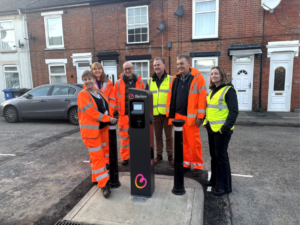Local policy and strategy is essential to maximise the benefits of e-scooters, according to a new report published by the low emission vehicle research and consultancy group, Cenex.
In the UK, 58% of car journeys are less than 5 miles long. According to Cenex, using e-scooters for the last and first mile of a journey could reduce CO2 emissions by between 66-90% and also significantly reduce air pollution.
However, without appropriate implementation, management and regulation, e-scooters can disrupt the transport network and the city as a whole in a negative way.
This was seen in Paris, France where initially there was no control over the market and the streets quickly became littered with scooters and there was an increasing number of accidents involving pedestrians and other road users.
Therefore, the authors of the report are urging public authorities to cooperate with private operators from the start to effectively integrate e-scooters into a transport system where they complement active travel and public transport rather than compete against them.
The report highlights that knowledge of the local area should also be shared in order to identify key sites for deployment that will ensure a high proportion of car journeys are replaced, such as at bus or train stations, universities and tourist attractions.
David Philipson, a transport technical specialist at Cenex, said: ‘Through openness, planning and regulation, e-scooters represent a large piece of the puzzle in decarbonising urban transport, and the lessons learnt from an e-scooter deployment can help prepare cities for future transport innovations.
‘It is evident that e-scooters are here to stay, with operators committed to continual improvements for the benefit of both the environment and society.
‘Though still in its infancy as an industry, e-scooters are already providing a genuine, affordable, green solution to private car use in city centres which will only improve over time.
‘Local authorities need to take an active role in the deployment of e-scooters in their regions, setting out regulations for operators in order to ensure that e-scooters meet both their ambitions and their citizens’ needs.’
Photo Credit – Pixabay
















